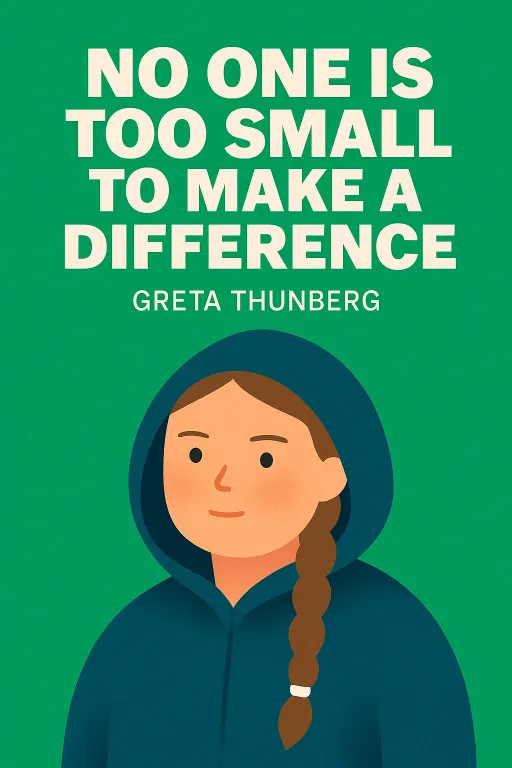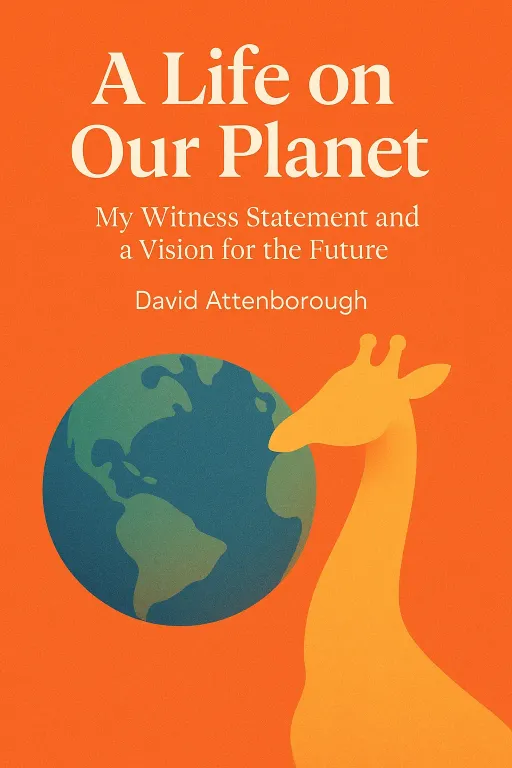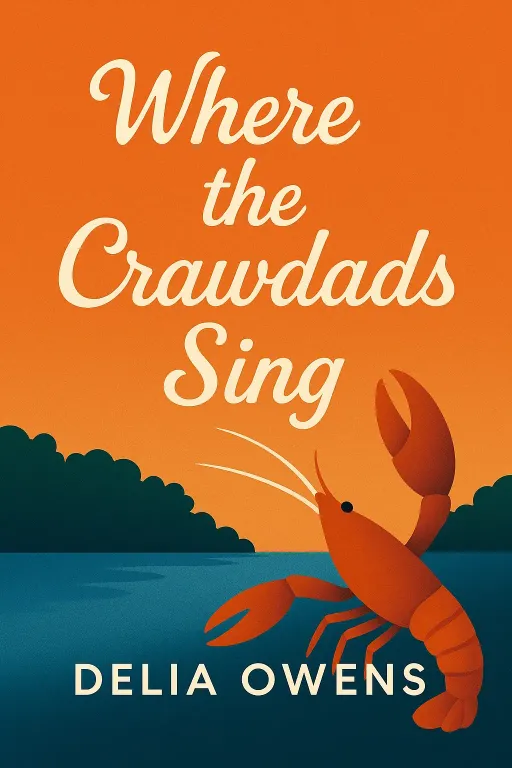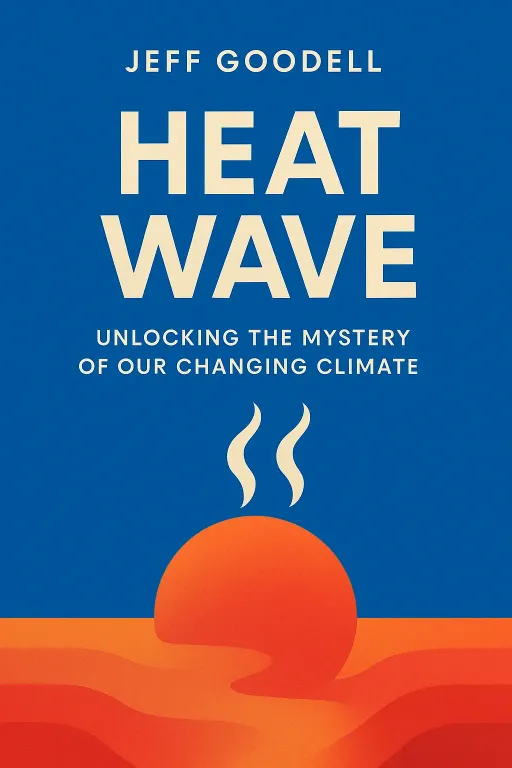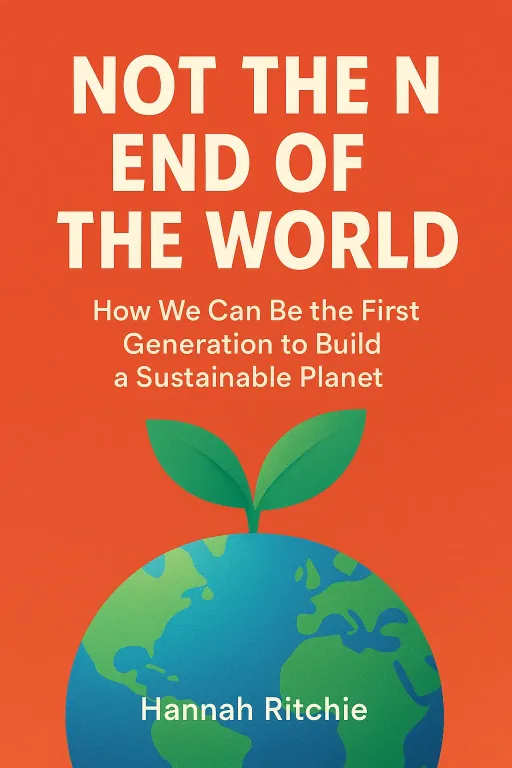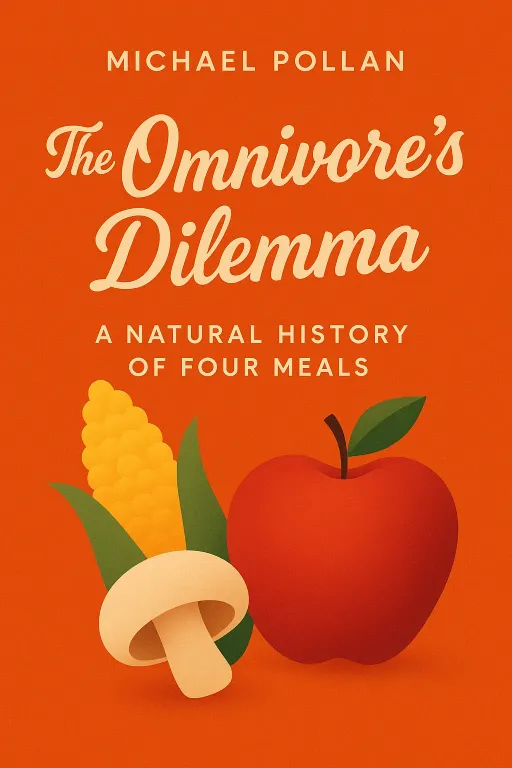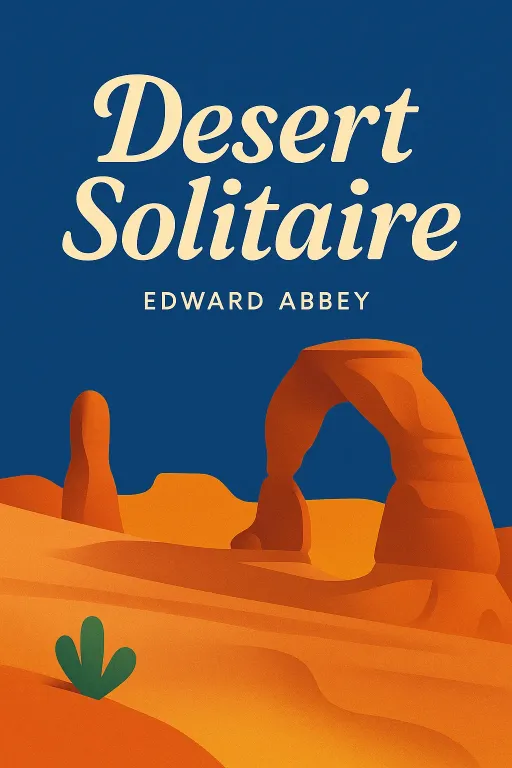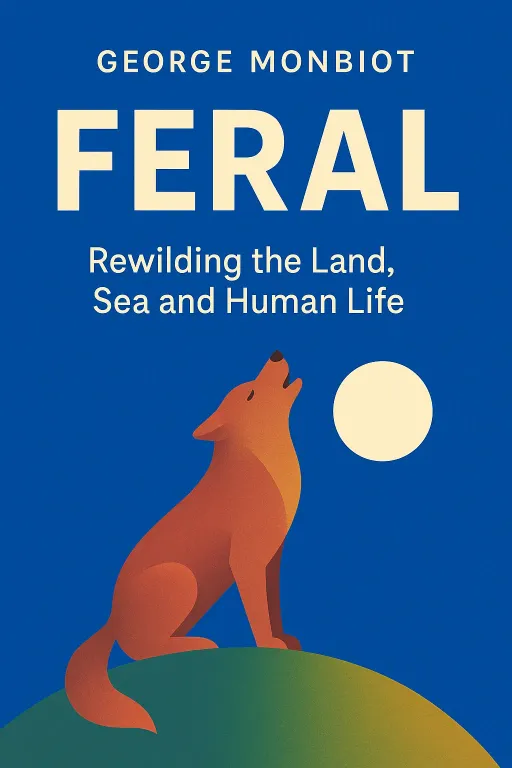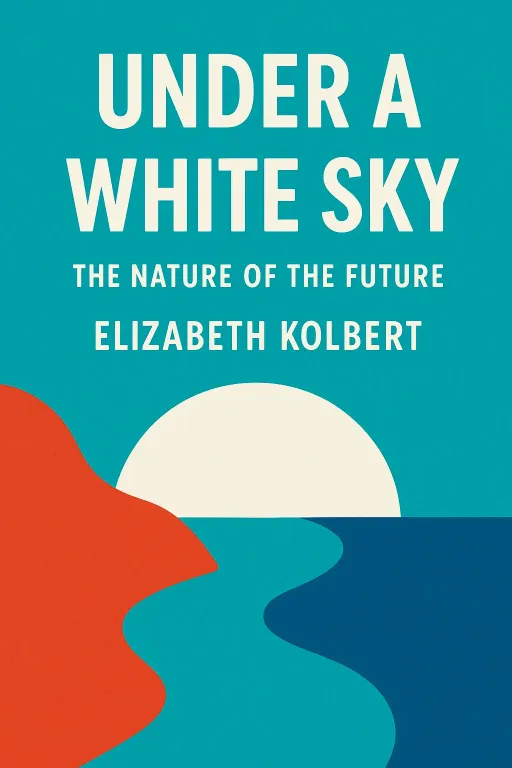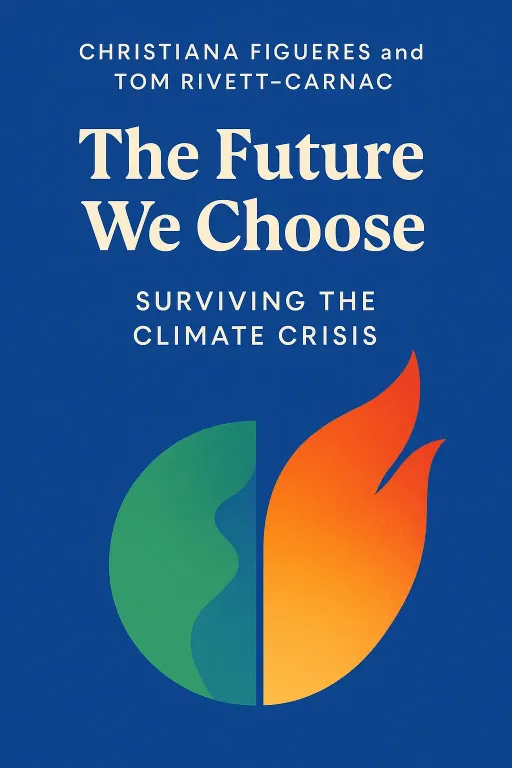
The Stubborn Optimist's Guide
12 minSurviving the Climate Crisis
Golden Hook & Introduction
SECTION
Mark: I read a wild statistic this week. A single person in the UK consumes over 65 pounds of new clothes every year. The fashion industry alone is responsible for 10% of global CO2 emissions. It makes you wonder if our closets are a bigger problem than our cars. Michelle: That is an insane amount of fabric. And it’s the perfect entry point for the book we’re talking about today, because it gets right to the heart of our daily choices. We're diving into The Future We Choose: Surviving the Climate Crisis by Christiana Figueres and Tom Rivett-Carnac. Mark: And these aren't just any authors. These are the people who were in the room, the key architects of the 2015 Paris Climate Agreement. They literally wrangled 195 countries into a deal that almost everyone in the world of diplomacy said was impossible. Michelle: Exactly. I mean, one of them, Tom Rivett-Carnac, even spent two years as a Buddhist monk before his climate career. That tells you something about the kind of perspective they bring to this. It's not your typical doom-and-gloom science report. Mark: Not at all. They bring that frontline experience—that blend of high-stakes diplomacy and what they call 'stubborn optimism'—into this book. It’s less of a warning and more of a practical, and surprisingly hopeful, battle plan. And their battle plan starts by painting two incredibly vivid, and starkly different, pictures of the world in 2050.
The Stark Choice: Two Futures, One Decade
SECTION
Michelle: Right, this is the part that really grabbed me. They don't just throw charts at you. They tell two stories. What does our world look like if we fail? Mark: It's a chillingly plausible future. They describe the world in 2050 if we continue on our current path, heading for over 3 degrees of warming. It’s a world where the air is thick with pollution, a permanent haze. They have this little story about a person waking up, and the first thing they do, before even opening a window, is check an app on their phone. Not for messages, but for the air quality index, to see if it's even safe to breathe outside. Michelle: Wow. That’s so specific and so… mundane. That’s what makes it terrifying. It’s not some Hollywood disaster movie; it’s the slow erosion of everyday life. Mark: Precisely. They talk about Paris regularly hitting 44 degrees Celsius, or 111 Fahrenheit. It’s no longer a freak heatwave; it's just… summer. The Great Barrier Reef isn't just dying; it's gone. They call it the world's largest aquatic cemetery. Coastal cities like Miami and Shanghai are becoming modern-day Atlantises, with skyscrapers jutting out of the water. And this isn't just an environmental issue; it triggers social collapse. They describe "water wars" erupting in the United States over the shrinking Colorado River. Michelle: That's genuinely terrifying. It makes it so real and personal. So this isn't just about polar bears, it's about our daily lives being fundamentally worse, more dangerous, and filled with anxiety. Mark: Exactly. It's a world of constant crisis, scarcity, and human misery. But then, they pivot. They say, "That is one future. It is not inevitable." And they paint the other picture: the world we must create. The 1.5-degree future. Michelle: Okay, so what does that world look like? Give me the antidote. Mark: The antidote is surprisingly beautiful. It’s a world where cities have been fundamentally re-imagined. They tell the story of Madrid, a city that was facing desertification. Instead of just more air conditioning, they created a "green envelope." They planted trees everywhere, covered buildings in vegetation, and repaved plazas with porous materials to capture rainwater. The plants cooled the city, cleaned the air, and even reduced noise. The city became a leader in green tech and a more pleasant place to live. Michelle: So cities become more like forests. Mark: In a way, yes! They describe a world with extensive reforestation, not just in the countryside but within our urban centers. Transportation is transformed. High-speed rail has replaced most short-haul flights. Cars are electric, shared, and autonomous, freeing up vast amounts of land once used for parking lots, which are now community gardens or rewilded parks. It’s a world that is not only sustainable but healthier, quieter, and more connected. Michelle: That sounds amazing, almost like a sci-fi utopia. But is it realistic? It feels so far from where we are now, with political gridlock and everyone fighting. How do we even get from here to there? Mark: That's the million-dollar question, and the authors' answer is fascinating. They argue the biggest barrier isn't technology or money, it's our mindset. This is where they introduce the idea of 'Stubborn Optimism.'
The Inner Toolkit: Stubborn Optimism
SECTION
Michelle: Okay, Mark, but 'stubborn optimism' sounds a bit like wishful thinking when you see headlines about wildfires and floods. How is this different from just burying your head in the sand? Mark: That’s the key distinction they make. It's not blind optimism. It's not ignoring the bad news. They define it as a deliberate, active choice. It’s the mindset of someone who is fully aware of the severity of the challenge but intentionally focuses their energy, their creativity, and their will on the possibility of a better outcome. They have this incredible quote from Christiana Figueres herself: "Impossible is not a fact. It is an attitude." Michelle: An attitude. I like that. It suggests it's something you can practice, not just something you either have or you don't. Mark: Exactly. And they have the ultimate case study to back it up: their own experience with the Paris Agreement. People forget how utterly hopeless things were. The 2009 climate negotiations in Copenhagen were a complete and total failure. The international community was left bitter, distrustful, and deeply pessimistic. When Christiana Figueres took the job to lead the next round of talks, she said in her first press conference she doubted a global agreement could be reached in her lifetime. Michelle: Wow. So the person in charge started from a place of despair? Mark: She did! But she quickly realized that her own mindset was a self-fulfilling prophecy. If the leader didn't believe it was possible, it never would be. So, she made a conscious choice to become, in her words, a "beacon of possibility." For six years, she and Tom Rivett-Carnac worked not just on the policies, but on changing the mood. They fostered what they call a "contagious frame of mind" among the negotiators from 195 countries. They shifted the conversation from one of burden-sharing and blame to one of shared opportunity and collective wisdom. Michelle: So they were basically doing psychological work on a global scale. Mark: That's a perfect way to put it. They were engineering hope. And it worked. In 2015, the "impossible" agreement was signed. They argue that this stubborn, gritty, determined optimism was the essential ingredient. It wasn't about ignoring the science; it was about believing in humanity's capacity to rise to the challenge once the right conditions were created. Michelle: Okay, that's a powerful story for a UN diplomat who can influence world leaders. But for the rest of us, how do we cultivate that when we're just individuals bombarded with bad news every day? It feels like a huge psychological lift. Mark: It is a huge lift! And that's why the authors say we need to channel that optimism into a new identity. This is the next crucial step in their argument. They say we need to stop seeing ourselves primarily as consumers and start acting like citizens.
From Mindset to Action: The Citizen, Not the Consumer
SECTION
Michelle: A citizen, not a consumer. What’s the difference in their view? Mark: It’s a fundamental shift in where we locate our power. As a consumer, your main power is what you buy or don't buy. It's an individual act. As a citizen, your power lies in your voice, your vote, your influence on the community, and your participation in collective action. It's about shaping the system, not just making choices within it. Michelle: It’s the difference between buying an organic apple and demanding that the grocery store stop selling produce grown with harmful pesticides. Mark: Exactly! And the book provides stunning data to show why this is so critical. For example, they point out that almost all tropical deforestation is driven by just four commodities: beef, soy, palm oil, and wood. And beef is responsible for more than double the other three combined. Michelle: So my burger has a much bigger impact than I thought. Mark: A massive one. But the citizen response isn't just to stop eating burgers. It's to support movements that hold corporations accountable. They tell the story of the Greenpeace campaign against Nestlé for using palm oil linked to deforestation in their Kit Kat bars. It was a citizen-led movement, using social media and protests, that forced a global giant to completely reverse its policy and commit to zero-deforestation. That’s citizen power. Michelle: Ah, so it's not just about buying the 'eco-friendly' version. It's about demanding the whole system change. That feels more powerful. But this brings up a common critique of the book. It’s been praised for its hopefulness, but some readers feel it puts too much responsibility on the individual instead of on the massive corporations and governments that are the biggest polluters. Does this 'citizen' idea address that? Mark: I think it's their direct answer to that critique. The ultimate act of a citizen is to engage in the political process. They aren't letting governments and corporations off the hook; they're saying it's our job as citizens to force them to change. They highlight the recent wave of nonviolent civil disobedience, like the Extinction Rebellion protests in London. Michelle: The ones where they shut down bridges? Mark: Yes. And within two months of those protests, the UK parliament declared a climate emergency and became the first major economy to pass a net-zero emissions law. The book cites research showing that when just 3.5% of a population engages in sustained, nonviolent protest, major political change becomes inevitable. Michelle: 3.5 percent? That’s actually a surprisingly small number. Mark: It is! And look at Greta Thunberg. A single teenager striking from school ignited a global movement, Fridays for Future, that the head of OPEC—the oil cartel—called the "greatest threat" to their industry. That's the power of one citizen inspiring millions of others. It’s about realizing that our individual actions, when they become collective political actions, are the most powerful force we have.
Synthesis & Takeaways
SECTION
Michelle: So it all comes back to the story we tell ourselves. If we see ourselves as powerless consumers, we are. If we see ourselves as powerful citizens, we can be. Mark: Precisely. Ultimately, the book's most profound message is that the story we tell ourselves about the future, creates the future. They bring up the space race. The US was terrified and demoralized after the Soviets launched Sputnik. The story was one of failure. But then Kennedy didn't just promise more funding; he told a new, incredibly ambitious story: we will put a man on the moon in this decade. That story galvanized a nation. They tell this great anecdote about a janitor at NASA who, when asked by the president what he was doing, said, "Mr. President, I'm helping put a man on the moon." Michelle: Wow. That gives me chills. Everyone was part of the same story. Mark: And that's what Figueres and Rivett-Carnac are calling for. A new story for the climate crisis. Not one of sacrifice and doom, but one of regeneration, innovation, and shared human purpose. It reframes the whole thing. It's not about 'giving things up.' It's about choosing a better, healthier, more equitable world. The question it leaves you with is, which future are you choosing, and what's one thing you can do today as a citizen to start building it? Mark: That's the perfect question. We'd love to hear what our listeners think. What's one citizen action you're inspired to take after hearing this? Let us know on our social channels. We read all the comments. Michelle: This is Aibrary, signing off.
